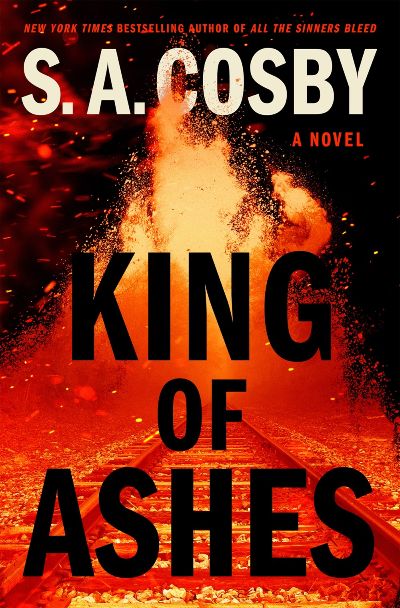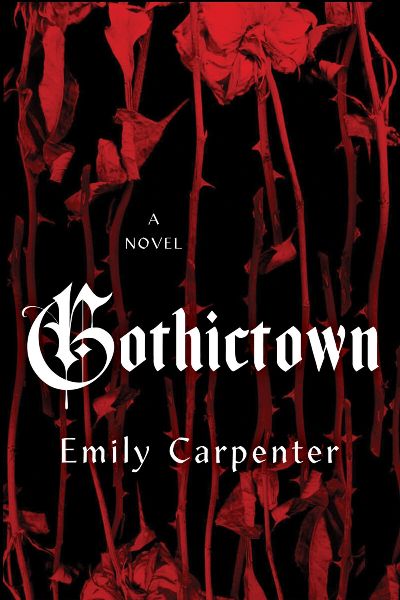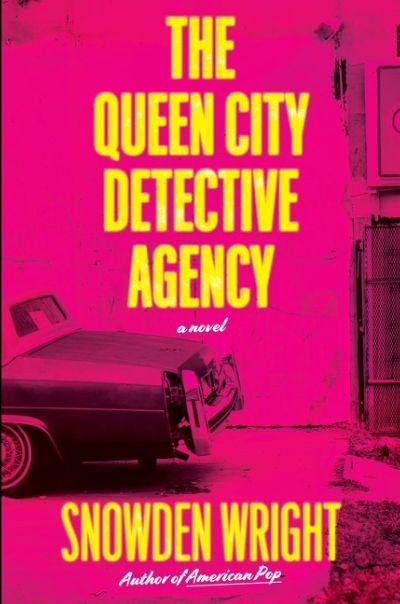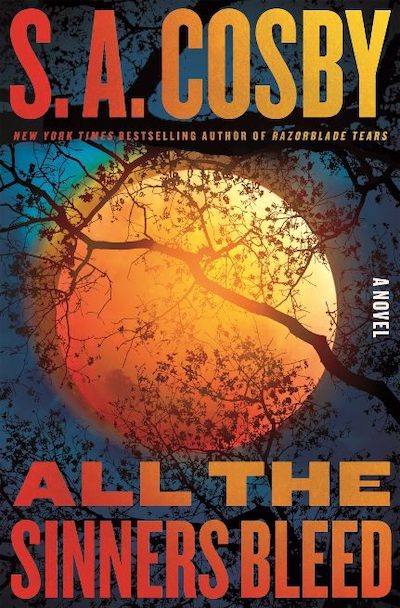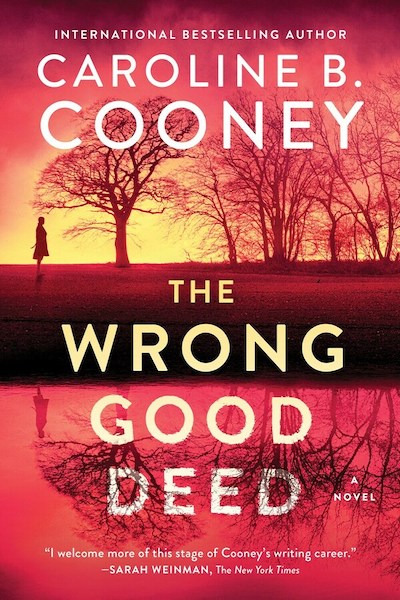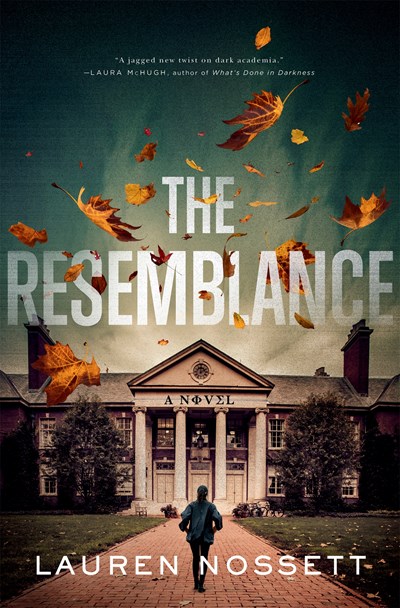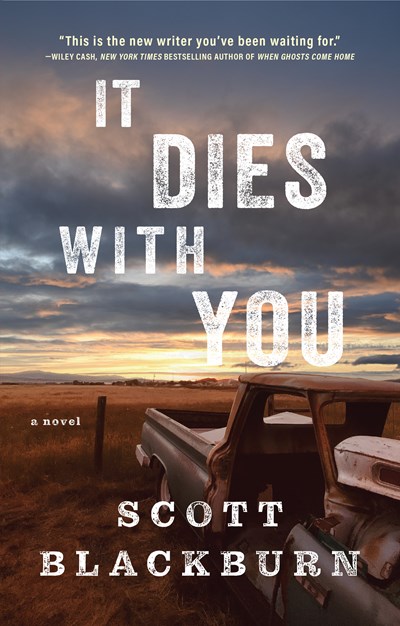A gripping family story packed with tension, violence, and secrets that’s sure to enthrall Cosby’s legions of fans. It introduces the Carruthers clan of Jefferson Run, GA. The town, known to local kids and jaded adults as Jefferson Got the Runs, used to be prosperous, but “now all we make are orphans and widows.” In a gray area in that regard is Keith Carruthers, who might or might not be widowed. His wife hasn’t been seen for years; he’s the owner of a crematory; and locals think he killed and disposed of her himself. Now that he’s been the victim of a hit-and-run and is comatose, his grown children, Roman, Dante, and Neveah, may never know what happened to their mother. But that’s the least of their worries after rich, successful Roman returns from Atlanta to see his father and tries to help Dante, who’s in trouble with ruthless local gangsters. Roman is used to more than a little white-collar sleight of hand in his financial advising business, but is quickly far out of his depth in the evil underbelly of his hometown. “We all fall short of grace, but the beauty lives in the attempt,” says Cosby (All the Sinners Bleed, The Best American Mystery and Suspense 2024), neatly summing up Dante’s increasingly bloody helping hand and the family’s striving to love one another even when the world gives them every reason to give up.
Southern
Locals call small-town Juliana, Georgia, “Gentle Juliana.” New York chef Bille Hope calls it her family’s best chance at a new start after the pandemic finished her restaurant. The offer to move to Juliana is incredibly generous: the ad Billie spots says that the family can buy any vacant home in the town—look at those Victorian mansions!—for just $100 if they open a business there. Billie; her husband, Peter; and their daughter, Mere, are Georgia residents before you know it and even purchase a fabulous house that wasn’t supposed to be available. In no time, Billie’s new restaurant is booming, but so is the family’s fear that they have made a bad mistake. The house has a malevolent feeling and Peter is exhausted and depressed by his never-ending search for a dangerous open well that a strange neighbor tells them is on the land. While Billie begins to fall for the owner of the store next to hers, she also starts to investigate what’s really going on in the town and why she and Mere have the same nightmares about trapped, crying children, a puzzle that readers know a little about from the book’s sinister opening chapter detailing an event in the town’s early years. This has just the right amount of creepiness to add a scary but not terrifying element to the promised gothic tale, and the post-pandemic what-do-I-do-now feeling is spot on. Read this alongside Sylvie Perry’s The Hawthorne School and start looking gift horses in the mouth.
On New Year’s Day 1985, as the countdown to Ronald Reagan’s second presidential inauguration begins, Turnip Coogan, in custody for the murder of real estate developer Randall Hubbard, falls from the roof of the courthouse in downtown Meridian, Mississippi. It may be morning in the rest of America, but that Reaganite optimism has bypassed the state’s “Queen City,” where strip malls developed by the late Hubbard have “sucked the life out of the city’s downtown” and its convenient location between New Orleans and Atlanta has made Meridian “a vital pit stop in the loosely affiliated crime belt of the Deep South.” Knowing of her son’s connection to the notorious Dixie Mafia, Lenora Coogan is convinced that his death was neither an accident nor a suicide and hires Black cop-turned-private investigator Clementine Baldwin and her white partner, Dixon Hicks, to find the “sons of bitches who killed him.” Complicating the investigation is the still-jailed Odette Hubbard, who had recruited Turnip to kill her husband and then canceled the hit job. She wants Clem and Dixon to identify the real killer, a request that puts a target on Clem’s back. Jim Crow laws may be a thing of the past, but Clem still must battle old-fashioned racism as she goes after the city’s powerbrokers. Wright’s (American Pop) Southern noir introduces a compelling, complex, bourbon-loving sleuth who both loathes and loves her hometown. Her budding friendship with Dixon will have readers anticipating their next crime-solving adventure.
A school shooting in fictional Charon County, VA, reveals horror and catalyzes reckoning in S.A. Cosby’s eagerly awaited follow-up to Razorblade Tears. This is, unsurprisingly, a masterpiece of Southern noir, but that’s selling it short: it’s a fantastic novel, period. The first responders to the shooting are led by Sherriff Titus Crown, a Black man who won a contentious, racist battle for his seat and who now safeguards Klan members and kind neighbors alike. Titus is able for them all, alternating deep kindness with cutting, politically savvy one-liners that put racists in their place. (Appropriate, given his lack of fondness for “stand[ing] there like an extra in Gone with the Wind.”) But even he is thrown when the investigation into the school shooter—a Black man killed at the scene by white cops—uncovers a grisly secret. Join Titus and his meticulously drawn, flawed family, colleagues, and townsfolk for a deep introspection on how evil begets evil and good begets good. And watch for the gripping movie that’s sure to spring from Cosby’s pages.
Clemmie and Muffin, friends in an active senior community (it’s not a retirement home!) are attending church together, content in their matching jackets and cozy friendship. Then Clemmie spots someone she knows from the past and is terrified and desperate to get out NOW. In flashbacks to the 1960s, when Clemmie was married to a man from their small South Carolina town’s most prominent family, we find her in a quandary. The men in her husband’s family are violent racists, but she’s too afraid of them to do anything about it…until she must take action and then run away forever. In the present, things are heating up as a white reporter makes an incendiary claim about something that happened to him in the town and a Black resident wants answers on her nephew’s disappearance. Then there’s a death among the seniors and history can’t be swept under the rug any more. This is a compelling read on many levels. The senior community’s friendship, backbiting, and the everyday indignities of growing “less active” are portrayed with wry accuracy by Cooney; Muffin’s disdain for Clemmie’s casual racism is a highlight. The author raises important questions: Can people really change? What is the responsibility of the bystanders to a crime? How can small-town residents from opposite sides of the fight for Civil Rights deal with one another today? For those who like a controversial mystery and fans of Richard Osman’s retirement-community-set The Thursday Murder Club.
When a member of the Kappa Phi Omicron fraternity is killed when crossing an Athens, GA street, it at first seems like an unfortunate accident. Homicide Detective Marlitt Kaplan is first on the scene because she happens to be nearby, but it turns out that her murder-investigation skills might be needed after all, because witnesses all mention the same odd set of facts. The victim, Jay Kemp, appears to have been run over by…Jay Kemp. Although he didn’t have a twin, a person who looked exactly like him was driving the car that ran him over, and that person was smiling as he gathered speed while moving toward Jay. The victim’s fraternity is the first place Kaplan and her partner hit when gathering facts about Jay, and from the start, things don’t look right. Is the boys’ secretiveness just fraternity culture or a coverup? Nothing is clear, and it’s made even murkier by the intertwining of grudges and dramas with former fraternity members, current members who are on the outs, and the many, many girls in the wings. A slowly unfolding backstory concerning what Marlitt endured when her old friend joined a different fraternity adds to the mystery. This intriguing debut is one for fans of academia gone wrong, such as depicted in the TV series The Chair.
A straightforward mystery that is brought to life by three wonderful characters. Thirty-something Hudson Miller is down on his luck. His boxing career is over, he’s working as a bouncer, and he’s couch surfing with friends. To make matters worse, Hudson’s estranged father is murdered, shot in the back of the head while sitting at his desk at his salvage yard in deeply rural Flint Creek, North Carolina. To Hudson’s surprise, he inherits the business, and—with no other options apparent—goes home to run Miller’s Pull-a-Part. He also takes on the job of finding his father’s murderer, helped out by Charlie Shoaf, a Vietnam vet who more or less comes with the salvage shop. When a corpse is found in the trunk of a salvaged vehicle, and a cache of firearms is discovered as well, Hudson realizes that his father’s life was a whole lot different than it appeared. Add to the mix the self-assured, brilliant teenager Lucy Reyes—who is seeking answers to her own family tragedy—and you’ve got a great threesome. I have no idea of the author’s intent, but I’d love to hear more from Hudson, Charlie, and Lucy—their chemistry is dynamite. Fans of the TV series Ozark will love this book.

